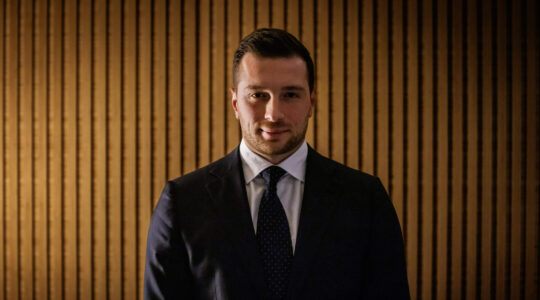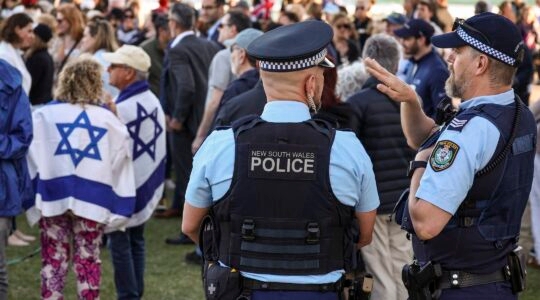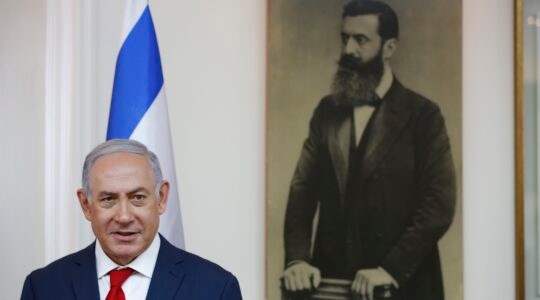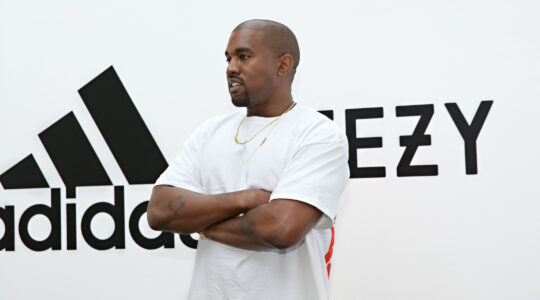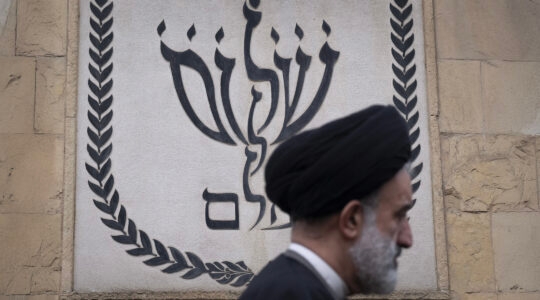REYKJAVIK, Iceland (JTA) — Nearly half an hour after Rosh Hashanah services were set to begin, the congregation in this chilly city still was one man short of a minyan. But as the small group of Jewish expats and their Icelandic spouses mingled and waited, no one complained.
After all, what’s 30 minutes to a community that’s been waiting more than 60 years?
The Rosh Hashanah services held in downtown Reykjavik last week — organized by a 23-year-old Chabad rabbi who is six months into a quest to revive the Icelandic Jewish community — were the first formal ones with a rabbi and a Torah scroll held in the city since the end of World War II, according to community members.
Most of Iceland’s Jews — there are about 40 in total — live in Reykjavik, the world’s northernmost capital and a compact, vibrant city of about 120,000. In all, some 315,000 people live in Iceland.
There is no synagogue here, no Jewish community center, no organized structure. Judaism is not even one of Iceland’s state-recognized religions.
Until Rabbi Berel Pewzner decided to reach out to Iceland’s Jews in March, there had been no rabbinic presence in Iceland for years. The last rabbis to come here were those occasionally imported to lead services for Jewish soldiers at the NATO base located about 40 minutes away in Keflavik; the base closed in 2006. Chabad tried an outreach effort here in the 1990s, but it was not successful and was discontinued.
Pewzner, who led two Reykjavik seders in April and is back in the city now for the High Holidays, said the success of the seders compelled him to press on.
“What happened at the seder was that people were sitting across from each other and saying, ‘Wait, you’re Jewish and you live in Iceland?’ ” he said. “It was just an incredible scene to see people connect. There was a consensus that we had to do more.”
For the last few decades, the community has experienced highs and lows. About 15 years ago there was enough interest to sustain Saturday morning services. But in recent years it’s been a struggle just to organize meet-ups for Passover, Chanukah and the High Holidays apple-and-honey tastings.
There have been sporadic get-togethers, including seders, menorah lightings and a belated Tu b’Shvat tree planting in the summer after the ground had thawed. Some symbolic bar mitzvahs used a paper Torah scroll. This time, the Chabad rabbi brought with him a genuine, albeit compact, Torah scroll.
Mike Levin, a Chicago native who’s been in Iceland for 25 years, said Chabad couldn’t have come at a better time.
“They came at the lowest point that I’ve seen our community since I came here,” he said. “We’re at a point where we just can’t do it anymore. It’s actually a blessing that the rabbis are here because there have been Rosh Hashanahs and Yom Kippurs where we haven’t got together.”
The services last week, which drew a minyan both days, were scaled-down, two-hour affairs aimed at a community of Jews who are mostly secular and unfamiliar with holiday rituals.
In his sermon Pewzner — who blew the shofar and led the service along with his friend Rabbi Berel Grunblatt, an Argentinian Jew and cantor — sprinkled in references to Icelandic phenomena like the Northern Lights and reminded the participants of the historical significance of their gathering.
“I think we’re heading in the right direction. Together we’ll make things happen,” he said at the service. “We have the opportunity to make this year a historic year not just for ourselves and our personal lives, but for the Jewish community in Iceland.”
Pewzner said he hopes the High Holidays services — combined with an outreach effort that he and Grunblatt will undertake this week to meet with every known Jew in the country — will be the start of a process that could culminate in a permanent Chabad presence in Iceland.
“The goal is that every Jew should have what he needs here — physically, materially, spiritually — to be proud of his heritage and educate his children,” he said.
In the future, that could also entail the Jewish community filing an application to become a state-recognized faith, which would direct some tax funds toward Jewish institutions. But that might require an exception from the Icelandic government, which generally requires state-recognized religions to have at least 50 members.
One problem is that the application must be sponsored by an Icelandic citizen over the age of 30 — a set of circumstances that none of the community’s active members fit.
“Somebody has to be the president, and I don’t know if people are really willing to do this, to put it down on paper that they’re Jewish here,” Levin said. “It’d be one thing if I did it, but I don’t want to be the only one to do it. I want it to be a lot of people to do it, kind of like a grass-roots thing.”
Some grass-roots Jewish community activity already is taking place.
Daniel Harpaz, an Israeli, and his Icelandic wife, Sigurlin Edda Andresdottir, are working to document the kosher food available in Icelandic supermarkets in an effort to develop a comprehensive Jewish travel website for the country. They’re also trying to work with Reykjavik-area hotels to make them more amenable to the needs of religious Jewish tourists.
Last week’s services attracted a handful of tourists, including Holly Diener, a New York native who now lives in Paris and was in Iceland for four days with her brother. Realizing she’d be in Reykjavik for the holidays, Diener began scouring the Internet to find some way of celebrating Rosh Hashanah.
“When I saw there were no synagogues, I didn’t realize there were countries with no synagogues, so that makes the fact that we were able to gather here together even more special,” she said. “It’s something that links us, no matter what country, no matter what set of circumstances.”
Whether the Rosh Hashanah services marked the start of something new for the Icelandic Jewish community or just another moment in its decades of ups and downs remains to be seen. But for the 40 or so Jews who gathered for Rosh Hashanah, schmoozed and snacked on apples and honey, challah, smoked salmon and honey cake, it felt like something good already was happening.
Sigal Har-Meshi, an Israeli who married an Icelander and has lived in the country for the past seven years, was one of the locals attending her first Rosh Hashanah service in decades. As one of the community’s leaders, it often falls on her to coordinate holiday plans and ensure that Reykjavik’s Jews don’t become too fragmented and lonely.
“It’s difficult — I always have to call people and beg them to come, but they like it,” said Har-Meshi of the holiday gatherings. “I always say it’s the last time, it’s the last time, and then the holiday comes and I do it again. But it’s lot of work — it’s always last minute.”
Despite the challenges, Har-Meshi said there is something special about being part of such a small Jewish community.
“When we meet Jewish people, we feel close to each other so quickly,” she said. “At first I thought it was just Israelis, but then I met other nationalities, and it’s like family. To meet other Jews, it’s exciting.”
JTA has documented Jewish history in real-time for over a century. Keep our journalism strong by joining us in supporting independent, award-winning reporting.
